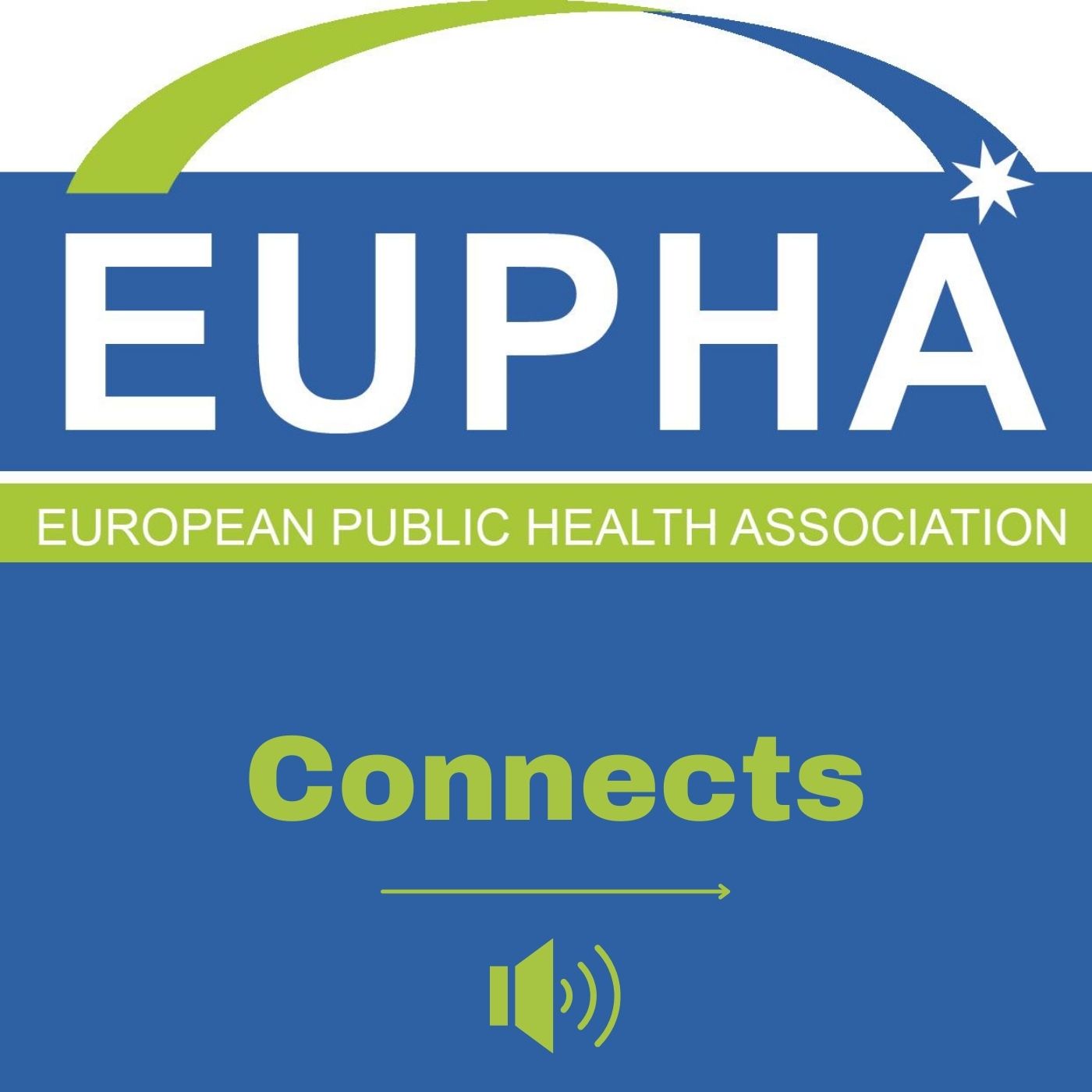 |
The European Public Health Association Newsletter - December 2021 |
1. EditorialWelcome to our December newsletter with monthly updates from EUPHA, the European Public Health Conference, the EJPH, our members, and key partners, including the European Commission, ECDC and WHO. We hope the information is useful to further your work. This is the last newsletter of 2021, another difficult year for all of us. We would like to wish you all a safe and happy festive season and a good start in 2022 and we look forward to working with you again in 2022. Wishing you pleasant reading, Iveta Nagyova, EUPHA President and Dineke Zeegers Paget, EUPHA Executive Director
|
2. EUPHA updateEuropean Public Health Week 2022Please mark these dates in your calendar already: the fourth edition of the European Public Health Week will take place from 16 to 20 May 2022. The overarching theme is 'Health througout the life course'. For regular updates: European Public Health Week - Home (eupha.org) Daily themes have already been selected: Day 1️⃣ - A healthy youth and health literate youth Watch out for 'predatory journals' and fake conferencesEUPHA office and most likely many of you are receiving invitations to publish in so-called 'predatory journals'. These are journals that have no peer review and no impact factor, but still ask for a high publication fee. For more information see this comment published in Nature 'Predatory journals: no definition, no defence'. There is also an increasing number of 'predatory conferences' being advertised. Please be aware about them and learn more about it: https://en.wikipedia.org/wiki/Predatory_conference. EUPHA at the WHO European Conference on Tackling Noncommunicable Disease Through Digital SolutionsOn December 14th-15th, the WHO European Conference on Tackling Noncommunicable Disease Through Digital Solutions was held with a triple objective:
Our president, Dr Iveta Nagyova, was part of the panel. She presented the most recent EUPHA topics and activities related to digital solutions for NCDs, and stressed that a successful European strategy for public health digitalization should integrate the following pillars: political commitment, normative frameworks, technical infrastructure, targeted economic investments, education, research, monitoring, and evaluation. EUPHA president goes for second termDr Iveta Nagyova has been elected for a second term as EUPHA president. Her EUPHA presidency will now run from 2020-2024. The EUPHA members welcomed her willingness to continue to be EUPHA president. NEW: EUPHA Connects - our podcastEUPHA Connects is the podcast that brings together public health professionals from various horizons and policy makers. This first episode is titled 'Law and ethics. Potato potatoe?'. In this episode Els Maeckelberghe - president of EUPHA-ETH - and David Patterson - member of the EUPHA-LAW steering committee - discuss the differences between the two disciplines but also highlight the bridges that connect them. RIVER-EU website launchThe website of RIVER-EU (Reducing Inequalities in Vaccine uptake in the European Region – Engaging Underserved communities) is now live! This project will improve access to vaccination services for children and adolescents in selected underserved communities, specifically reducing inequity in measles, mumps, rubella (MMR) and human papillomavirus (HPV) vaccines. |
3. European Public Health Conference15TH EUROPEAN PUBLIC HEALTH CONFERENCE, 9 - 12 NOVEMBER 2022Next year’s European Public Health (EPH) Conference will be held in Berlin, Germany, from 9 to 12 November 2022. Theme of the Berlin 2022 conference is Strengthening health systems: improving population health and being prepared for the unexpected. In the past two years, we have learned from the COVID-19 pandemic that infectious diseases know no boundaries. Although we have seen the successful development of vaccines, we have also seen with the spread of the Delta and Omicron variants around the globe that these vaccines have not yet been available to everyone. The growing health inequalities around the globe leads to a simple conclusion: Europe must take on a more active role in global health. This includes taking a stand on expansive issues such as planetary health, climate change, environmental degradation, water and food security, migration, gender and poverty. Europe must use its knowledge and influence to balance out market forces, expand regulatory oversight and create socially responsible systems for health, especially when it comes to the distribution of vaccines and essential medicines. Read more. Abstract submission Berlin 2022 Abstract submission for the 15th EPH Conference is open from 1 February until 1 May 2022. The EPH Conference offers excellent opportunities to learn from the latest research and practice, to network with experts and colleagues and to expand your professional horizons. Abstracts are invited for workshops and single presentations in all areas of public health research, practice, policy and education. Abstracts are considered for workshops, oral, pitch and poster presentations. Do not miss the opportunity to share your work at the largest public health event in Europe. Check our website for any updates.
14TH EUROPEAN PUBLIC HEALTH CONFERENCE 2021 – VIRTUAL EDITIONCertificate of attendance/accreditation The 14th EPH Conference 2021 - Virtual Edition - has been accredited by the European Accreditation Council for Continuing Medical Education (EACCME) with 15 European CME credits. Each medical specialist should claim only those hours of credit that he/she actually spent in the educational activity. The Certificate is downloadable from your personal EPH Conference account. The Certificates will be available until 1 April 2022. Abstract supplement All abstracts of the 14th EPH Conference are published in the Abstract Supplement of the European Journal of Public Health (EJPH). The publishers, Oxford University Press and the European Public Health Association (EUPHA) are delighted to offer delegates free online access to the EJPH until 31 December 2021. Login to your EPH Conference account. |
4. EUPHA members updateThe 2021 European Public Health Conference StatementThe European Public Health Association and partners, meeting at the Virtual European Public Health Conference from 10-12 November 2021, urge all governments to build back better and fairer after the COVID-19 pandemic, and in ways that will limit climate change and its impacts. We call upon national and international decision-makers to:
Check out who signed the statement here. You are invited to co-sign the Conference Statement as a public health organisation, institute, or member association by sending your support (and logo) to: office@eupha.org. |

5. European Journal of Public HealthAs of 1 January 2022, the EJPH is fully Open Access.Volume 31, Issue 6, December 2021EDITORIALS Prevalence and undiagnosed fraction of hepatitis C infection in 2018 in Spain: results from a national population-based survey VACCINATION HEALTH SERVICES RESEARCH HEALTH PROMOTION SOCIAL DETERMINANTS WORK AND HEALTH REPRODUCTIVE HEALTH COVID-19 MISCELLANEOUS CORRIGENDA EUROPEAN PUBLIC HEALTH NEWS |
6. Call for proposals, job opportunitiesISPUP is looking for two assistant researchersThe Institute of Public Health of the University of Porto (ISPUP) is looking for two assistant researchers in the field of Public Health Sciences for conducting research activities in the Epidemiology Research Unit - Institute of Public Health of the University of Porto (EPIUnit) The Smoke Free Partnership is recruitingThe Smoke Free Partnership is recruiting. SFP is looking for a Policy Officer and a Communications and Policy Officer. The deadline for applications is 24 December 2021. Wemos is looking for additional partner, from France or Germany, to join the Pillars of Health ProgrammeWemos is looking for additional partner, from France or Germany, to join their Pillars of Health Programme. ‘Pillars of Health – Towards solidarity for health worker balance in Europe’ aims to improve health worker availability and accessibility for all European citizens. The 3-year programme (2020 – 2023) focuses on building evidence, strengthening civil society and carrying out advocacy, in selected countries and at EU level. More information can be found in the call for expressions of interest. https://www.wemos.nl/wp-content/uploads/... |
7. Interesting news[PODCAST] Coronapod: How has COVID impacted mental health?https://www.nature.com/articles/d41586-0...PHIRI project - December newsletterIn this issue of the PHIRI newsletter, the team members share with you highlights of their one year achievements in a video, as well as some key insights that have emerged from the discussion at the one year anniversary event. https://mailchi.mp/8b2b6933ac39/phiri-ne... |
8. Upcoming courses and conferences
|
9. Interesting publicationsRequest Humanitarian crisis at the Poland-Belarus border: politics is putting migrants at riskThe Lancet Regional Health Europe | Editorial | December 2021 Health at COP26: just the beginningThe BMJ | Editorial | 7 December 2021 https://www.bmj.com/content/375/bmj.n296... Economic inequality in malnutrition: a global systematic review and meta-analysisThe BMJ Global Health | Original Research | 9 December 2021 Drawing light from the pandemic: Rethinking strategies for health policy and beyondHealth Policy | 5 December 2021 Report on Cost of Health Inequality to the NHS in WalesHere is the first report on the ‘Cost of Health Inequality to the NHS in Wales’ focusing on the ‘Cost Associated with Inequalities in Hospital Service Utilisation to the NHS in Wales’.
|
10. European Commission newsHealth and Food audits and analysis - Programme 2022This document sets out the work programme of the European Commission's Directorate for Health and food audits and analysis for 2022. It contains the details of controls planned in 2022 in the areas of food and feed safety, food quality, animal health, animal welfare, plant health and some areas of human health. https://ec.europa.eu/food/horizontal-top...Country Health Profiles 2021Experts from the Organisation for Economic Co-operation and Development (OECD) and the European Observatory on Health Systems and Policies (Observatory) prepared a set of 29 Country Health Profiles, covering all EU Member States, as well as Iceland and Norway.
Each Country Health Profile provides
https://ec.europa.eu/health/state/countr... |
11. European Centre for Disease Prevention and Control newsEurosurveillance - Volume 26, Issue 48, 02 December 2021Rapid communication Eurosurveillance - Volume 26, Issue 49, 09 December 2021Editorial New ECDC micro training on vaccine acceptance and uptakeThe European Centre for Disease Prevention and Control (ECDC) has developed a new 30-minute e-learning course for healthcare professionals aiming at increasing understanding of the drivers of vaccine acceptance and design targeted strategies to increase vaccine uptake. The course teaches, for example, how to describe the 5C model and advocate for its use in diagnosing barriers to vaccine acceptance and uptake. |
12. WHO newsWorld Health Assembly agrees to launch process to develop historic global accord on pandemic prevention, preparedness and responseIn a consensus decision aimed at protecting the world from future infectious diseases crises, the World Health Assembly agreed on December 1st to kickstart a global process to draft and negotiate a convention, agreement or other international instrument under the Constitution of the World Health Organization to strengthen pandemic prevention, preparedness and response. https://www.who.int/news/item/01-12-2021...New policy brief from WHO warns of health consequences of depriving children of libertyWhether it’s a prison, a refugee camp or an orphanage, there is no place in the world where children should be deprived of liberty. If children are kept in closed settings, the negative consequences for their physical health, mental health and cognitive development may be irreversible. This is one of the main messages of the latest WHO/Europe policy brief “Health concerns among children deprived of liberty”. https://www.euro.who.int/en/health-topic...Can video games make us healthier?WHO/Europe started an expert discussion on how gaming can improve our mental well-being, train health professionals to use new medical tools and even help people with physical limitations to overcome their conditions. https://www.euro.who.int/en/health-topic...Protecting health through the urban redevelopment of contaminated sitesMany contaminated sites are situated in or close to densely populated urban areas, increasing the potential impact of the contamination on nearby populations. Revitalizing and remediating these sites therefore not only addresses environment and health issues of contamination, but also provides opportunities for urban development. https://www.euro.who.int/en/health-topic...Greece: civil society reduces barriers to health and education for young people with disabilities during the pandemicTogether for Children, a network of Greek civil society organizations (CSOs) that supports people with disabilities, has been helping students with intellectual disabilities who are self-isolating, to get online to continue their studies during the pandemic – maintaining their education and social connections, and safeguarding their mental health. https://www.euro.who.int/en/health-topic... |
|
This newsletter received co-funding under an operating grant from the European Union’s Health Programme (2014-2020). The content of this newsletter represents the views of the author(s) only and is his/her sole responsibility; it cannot be considered to reflect the views of the European Commission and/or the Consumers, Health, Agriculture and Food Executive Agency or any other body of the European Union. The European Commission and the Agency do not accept any responsibility for use that may be made of the information it contains. |
|
Unsubscribe If you would like unsubscribe from the EUPHA newsletter then please click here. |



